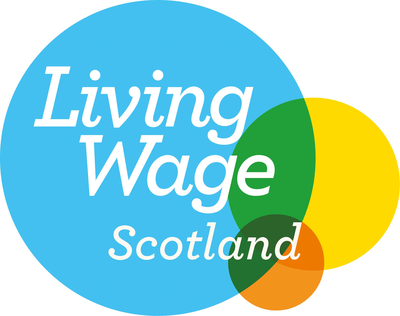By Ash Regan, Minister for Community Safety and MSP for Edinburgh Eastern
I decided to enter politics in 2016 because I wanted to stand up for the people of Edinburgh Eastern and to help make Scotland a better country.
One way we can build a better nation is by supporting more people out of poverty. This includes many people who are working full-time hours yet are struggling to get by each month on a wage lower than they deserve.
Poverty can limit what someone can achieve in life by severely affecting their mental and physical health and can ahave serious implications for a child’s education and life chances.
I am proud to serve in a government that takes the elimination of poverty so seriously. There has been a range of measures introduced by the Scottish government to address this – not least the ‘game-changing’ Scottish Child Payment – and key among them is support for the real Living Wage (rLW).
The rLW scheme is one that encourages employers to pay their staff and all contracted workers a wage that has been independently calculated based on living costs. At present, it sees everyone over the age of 18 paid £9.90 (a new rate for 2022/23 will be announced in November), which is 50p higher than the UK Government’s ‘National Living Wage’ (NLW) – which amounts to a difference of over £780 per year for someone working 35 hours a week.
The NLW also discriminates against younger adults in a way that the rLW does not – for example a 20-year-old on the rLW would earn £3.07 an hour more than another 20-year-old receiving the National Minimum Wage for doing the same job.
This extra income can be vital for households across Edinburgh Eastern and the country in ensuring that they are able to afford the necessities and provide them the opportunity to save.
In January 2020, before the pandemic began, I was pleased to invite several Edinburgh Eastern employers and their employees to the Scottish Parliament to hear how big a difference the rLW had made to them.
The employers, primarily from the care sector, reported back higher levels of employee happiness, lower levels of absenteeism, and a pride that they were paying staff what they deserved for the work that they do.
But it was even more heartening to hear how the employees themselves felt about the scheme. One told me she was happier because she was able to put a little bit more away each month for her wedding, another that they felt happier going to work because they knew their employer valued them and the hard work that they do, while another felt the increase had allowed them to worry less about making ends meet each month after payday.
Whilst those are anecdotal accounts, they are all backed up by research carried out by Living Wage Scotland, the Poverty Alliance and the Living Wage Foundation carried out by the Poverty Alliance who report similar experiences from employers and employees across Scotland and the UK.
What is clear is that we need more employers to sign up and I will continue to do what I can in my position as the MSP for Edinburgh Eastern to see that happens.
Last summer I wrote to employers across my constituency to raise awareness of the scheme and asked them to consider signing up. Following that, I visited two local businesses that at the time had recently become accredited – Bellfield Brewery and Curious Gem Jewellery – to congratulate them on their new status.
In November last year the campaign to encourage more employers to pay their staff the real Living Wage received a massive boost in Edinburgh when the Capital became Scotland’s second Living Wage City. Such a milestone announcement is fantastic for Edinburgh and will hopefully encourage many other towns and cities across Scotland to become part of the real Living Wage Places family.
I encourage any employer seeking to find out more about the LW accreditation requirements and process to contact accreditation@povertyalliance.org
